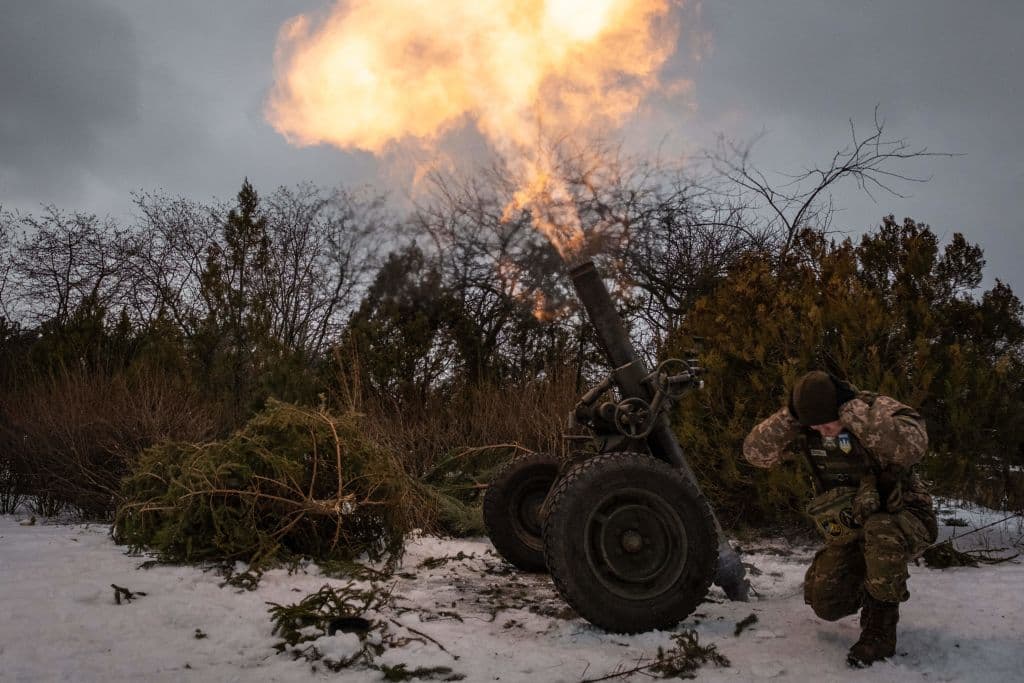Editor's note: The Kyiv Independent is exclusively re-publishing reports prepared by the Canadian Institute of Ukrainian Studies (CIUS) of the University of Alberta (Edmonton, Canada). CIUS launched its Media Monitoring Service (MMS) in the spring of 2022 to identify and critically assess dominant narratives, with a special focus on disinformation, in selected key Canadian and U.S. publications regarding contemporary Ukraine. The purpose of MMS is to inform experts and the general public how Ukraine and Ukraine-related events are reported on and bring attention to contentious ideas and claims that may be perpetuated in the media to Ukraine’s detriment.
Find the latest report on the U.S. media coverage below:
Three publications (The Atlantic, Atlantic Council, and The National Interest) were selected to prepare this report on how the situation in Ukraine has been portrayed in the press during the past week (14–20 January 2023). The sample was compiled based on their impact on public opinion as well as on their professional reputation, popularity among the readership, and topical relevance. These three publications represent centrist and conservative viewpoints on the political spectrum.
This report covers only the most-read and relevant articles about Ukraine, as ranked by the respective publications themselves in the past week. Its scope covers promoted articles on home pages and articles from special sections on Ukraine, with the hashtag #Ukraine, from the paper editions of the publications, and about Ukraine from opinion columns and editorials.
Topics featured in the selected articles:
Ukraine’s current affairs: Ukraine is likely to defeat Russia if the Western support continues; Ukrainian female artists tell stories about the war to the US public;The world and Ukraine: Germany should send Leopard tanks to Ukraine and better align its policies with those of its transatlantic partners; the West should not be afraid of Russia’s threats to use a nuclear weapon, as this scenario is improbable; the West should actively use old and invent new mechanisms to support Ukraine; the Western support should be progressively increasing up to the point where Ukraine becomes equal in firepower with Russia.
Main arguments:
Ukraine will win the war if it continues receiving advanced weapons. Phillips Payson O’Brien (The Atlantic) writes that regardless of Ukraine’s numerous successes on the battlefield, one of the fundamental Western assumptions today is that “Ukraine has little hope of ultimate triumph over a fully mobilized Russia. In this account, the longer the war goes on, and the more rounds of forced conscription that Vladimir Putin and his military impose on the Russian population, the more decisive Russia’s supposed advantages will be.” O’Brien considers this assumption to be faulty, as Russia continues to be halted by logistical, planning, and organizational failures. The newly mobilized soldiers—allegedly Russia’s most recent trump card—are undertrained, suffer from low morale, and lack modern equipment. Not to mention that any huge unprofessional army driving Soviet-era tanks and vehicles will have difficulties winning a 21st-century war. O’Brien deduces that “Russia is not gathering its strength in a powerful new army. It is assembling an inferior version of the force with which it started the war.” At the same time, “although Ukraine has suffered substantial military losses and absorbed a series of attacks on civilian targets, its defensive capabilities keep improving.” The Western world got shocked by Russia’s atrocities on the occupied territories and decided to arm Ukraine better, gradually increasing the quantity and quality of supplied armaments. The final pieces of Western equipment that Ukraine still awaits are high-mobility armed vehicles and long-range artillery systems. O’Brien concludes that the new stage of war may become very bloody due to Russia’s desire to win at all costs, including the massive sacrifice of the newly mobilized soldiers. However, “Ukraine has most of the advantages that typically decide a war. Its forces will be better trained, better led, and, with the West’s help, far better armed. And most Ukrainians’ determination is likely to remain strong, in part because they don’t have any choice but to win.”
Continue to the full report here.










